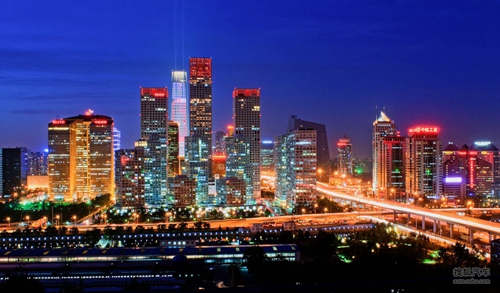By Robert Lawrence Kuhn
President Xi Jinping calls for China to upgrade its international communications — "to tell China's story well and to disseminate China's voice well." Although, for decades, international communications have been important for China, now, with globalization and instant information, international communications have become essential for China. This is especially true for the Communist Party of China, the CPC.

Why after almost a century does the CPC still mystify foreigners? On the 95th anniversary of the CPC's founding on July 1, 1921, it's worth wondering why the global mystery lingers. Two unambiguous facts confound its critics — the CPC has led China in its historic, sustained development, lifting hundreds of millions out of poverty and rejuvenating the nation as a global power; and the CPC continues to be, after 67 years, China's uncontested ruling party. The two facts are not unrelated.
In general, foreigners do not understand the CPC; worse, they feel no need to do so. This is a mistake, because in order to understand China today, one must understand the CPC today. So if the world does not understand the CPC, the CPC should reach out to the world. The veil should be lifted. How then can the CPC tell its story and disseminate its voice?
Effective international communications requires both robust substance and engaging style. Robust substance means how the CPC has led the country in its remarkable development and modernization; how the CPC has adapted to changing conditions, kept up with the times; and how the CPC faces the future, particularly its challenges, assessed by economic transformation and social satisfaction. Engaging style means how effectively the CPC tells its own story, measured by transparency, candor, sophistication, confidence, and wit.
Effective international communications begins by requiring native understanding of all the hard, blunt questions that foreigners ask about the CPC — even if some questions cause discomfort — and then by providing direct and clear answers to these questions.
Here are some of the kinds of questions that foreigners ask. How do the CPC's philosophies relate to classic communism, and how do China's policies reflect the CPC's philosophies? How is the CPC organized and how does its governance mechanism depend on its organizational structure? Why has China opted for what it calls multi-party cooperation under the CPC's perpetual leadership? Would China be more stable with a multi-party competitive system? What's the relationship between "Socialism with Chinese characteristics" and the market now playing a decisive role in the economy and the increasing non-public (private) ownership of enterprises?
Can a system with a single, permanent ruling party increase transparency, standardize decision-making, and establish credible checks and balances? What's the relationship between the ruling party and the rule of law? Can intellectuals really be free to make their best contributions, and what will it take for CPC officials, as President Xi said recently, to "trust intellectuals, welcome their criticism and try not to interfere in their creative work."
Moreover, looking ahead, what challenges do the CPC face? What can be learned from the CPC's history – we know about its triumphs, what about its tragedies? Why now has the CPC increased its crackdown on corruption, extravagance, and abuses of power? Why now must the CPC be rejuvenated? Finally, how does the CPC as the ruling party claim legitimacy?
The CPC is reaching out to provide answers. I'm pleased to participate. My weekly show "Closer To China" on CCTV News featured five episodes on "Understanding the CPC" that were broadcast in mid 2015 and five that are being broadcast in June/July 2016 (all are online or will be online). Produced in cooperation with the CPC's Organization Department, the series portrays the CPC's adaptation ("keeping up with the times"), philosophy (ideals and visions), governance (process of political leadership), personnel management (selection and training), and future challenges (facing problems).
From my experiences — including a recent, 12-day, in-depth study of Zhejiang province (environmental protection) and Qinghai province (healthcare reform, especially in mountainous areas) — I explain why the CPC asserts that its leadership is optimum for China's development. Key reasons include: the CPC's adaptability to changing conditions, using experimentation and testing new policies in limited areas before rolling them out nationwide; the CPC's five-level structure — central, provincial, municipal, township and village levels of organization — and how the CPC guides the government through the legislative National People's Congress and administrative State Council authorities.
In making China's system work, the quality of CPC officials is especially important. The CPC allocates substantial resources to selecting, training, monitoring, assessing and promoting officials, and, when necessary, to punishing, demoting or firing them. For well over a millennium, Chinese dynasties recruited the country's best and brightest into public service, a systematic and sophisticated process that the CPC has adopted and tailored for contemporary times. The process is rigorous and quantitative, with increasing focus on transparency, equity, breadth, and reducing all manner of cronyisms and favoritisms. Training is intense and throughout one's career. I've been meeting Chinese officials at all levels since the late 1980s, and, in general, they are among the most competent administrators anywhere.
Rules of work style and personal behavior are now firmer. An eight-point regulation attacks extravagance and "empty talk" and reduces bureaucratic trips and meetings. A training campaign stresses strictness in morals, power and self-discipline, and honesty in decisions, business and behavior.
All systems of governance have trade-offs. The benefits of a system with a perpetual leading party include the capacity to implement critical policies rapidly and assure that strategies that require long-term commitment have long-term commitment (for example, China's western development or national water resources). The costs or dangers of a system with a perpetual leading party are that society is more dependent on the quality of its leaders and more vulnerable to their vicissitudes and excesses. There are trade-offs too in stricter public regulations.
Looking ahead, no one doubts that the CPC is facing multifarious challenges. Economic reform and transformation are both vital and thorny. Social development, such as pollution control and healthcare, must meet escalating expectations. Moreover, public pressures are mounting for increasing transparency, strengthening checks-and-balances, and constructing institutions that are self-correcting. To deal with these intricate, entangled and sometimes contradictory objectives, the CPC is seeking to involve citizens in the process of governance and the oversight of government, such as through social media and public polling. President Xi states that the CPC must be governed by standardized rules and equitable procedures.
But to be the single ruling party, not subject to regular competitive elections, the CPC has a higher obligation, over time and consistent with maintaining social stability, to enhance standards of living and personal wellbeing, which includes comprehensive reform, real rule of law, transparency in government, public participation in governance, increasing democracy, increasing freedoms and human rights. Moreover, to spell out past errors, however egregious, and to explain how they were corrected epitomizes high morality and projects candid confidence in current achievements and future strategies. The CPC is a "work in process". It will always be and that is its strength. The CPC, as the single ruling party, must assess and adjust ceaselessly. That keeps it strong. Conditions change and so must policies. Only by such real-world grounding — monitored and modified continuously — can the CPC construct, in the mid term, a moderately prosperous society, and, in the longer term, a fully modernized country. For the
world to understand why the CPC endures, that's what the world needs to know.
Robert Lawrence Kuhn is a public intellectual, political/economics commentator, and international corporate strategist. He is the host of Closer To China with R.L. Kuhn on CCTV News.
( The opinions expressed here do not necessarily reflect the opinions of Panview or CCTV.com. )

Panview offers an alternative angle on China and the rest of the world through the analyses and opinions of experts. We also welcome outside submissions, so feel free to send in your own editorials to "globalopinion@vip.cntv.cn" for consideration.















